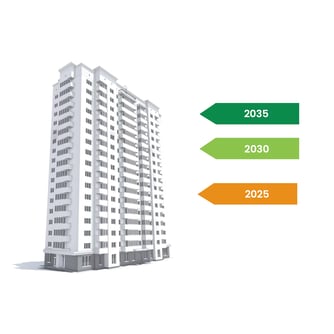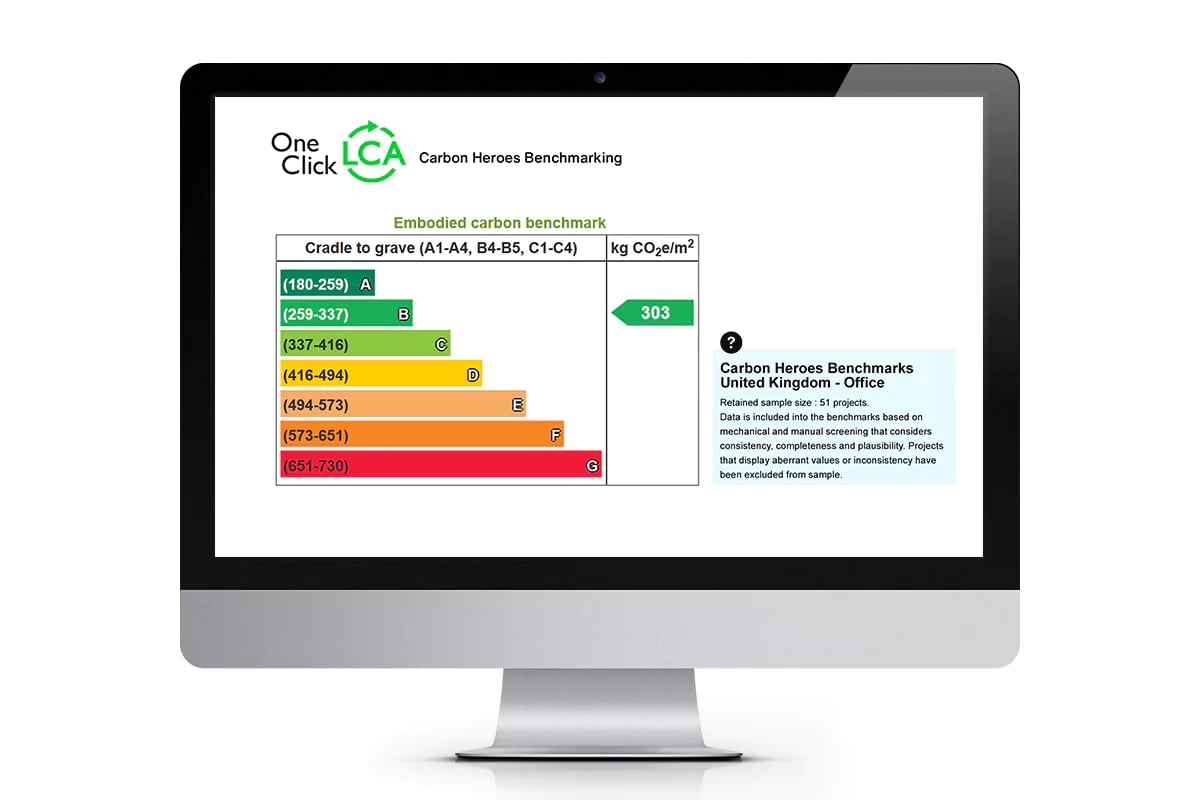
Benchmark your project’s embodied carbon with more than thousands of buildings
From benchmarking to reduction
Embodied carbon of buildings contributes around 11% of all global carbon emissions (World GBC, 2019) and has been brought to the spotlight of the climate emergency. Reducing embodied carbon starts with two key steps:
- Set up reduction targets based on the building type and local construction practices
- Compare material life cycle impacts and choose the low-carbon solutions
The Carbon Heroes Benchmarks provides you with embodied carbon benchmarks for different building types across different countries to support your reduction target settings. The data is compiled from thousands of anonymised, verified building projects using One Click LCA software.
Compare with peer projects and showcase your building performance
Get instant feedback on your building’s embodied carbon performance compared to similar buildings in the same country, region, or globally. The Carbon Heroes Benchmarks gives you a unique benchmark analysis from buildings that have used One Click LCA to perform their life cycle analysis.

Performance metrics (A-G) |
Benchmarks for different building types |
Benchmarks for different countries & regions |
|
The performance metric includes the range of results at two standard deviations of the mean for the building type. The range is divided into 7 (seven) bands equally distributed. The mean of the results falls within band “D”, and the lower and upper extremes of the range are in bands “A” and “G”, respectively. |
|
|
Supported by

Embodied Carbon Benchmarks that you can trust
The benchmarks are the results of material quantity inputs made by users of One Click LCA. The program implements the EN 15978/ISO 21930 standards as the basis of measurement and includes life-cycle stages A1-A3, A4, B4-B5, and C1-C4.
Consistent |
Verified by expert |
Verified by automation |
|
All data used for Carbon Heroes Benchmarking is rigorously anonymized. Each project includes information on building type, LCA scope reported according to EN-15978 standard, and gross internal floor area. |
An LCA expert reviews the scope of materials and results. Some potential sources of errors include incomplete scope for calculation, unusual quantities by building area, or suspected values. If errors or incomplete data cannot be resolved, the building is withdrawn from the sample. |
An internal algorithm checks the quantities of materials per building element and the ratio between material sub-types to guarantee that the quantities reported are plausible and/or fall within expected ranges. This information is provided to the users so they may review the data introduced and make necessary corrections. For example, the ratio of concrete mix to steel reinforcement. |
Carbon Experts Newsletter
Industry news & insights — straight to your inbox
Want to learn more?
Asha Ramachandran • Feb 20 2024
Marios Tsikos • Feb 08 2024
Asha Ramachandran • Dec 02 2025
Laura Drury • Nov 29 2024
